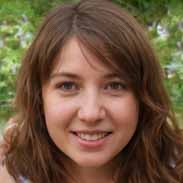LifeSpan Chapter 2 Quiz – Flashcards
Unlock all answers in this set
Unlock answersquestion
A group of ideas, assumptions, and generalizations that interpret and illuminate observations that have been made about human growth is referred to as a ____________ theory
answer
developmental
question
According to your text, theories produce __________ and generate _________.
answer
hypotheses; discoveries
question
Scientists design studies to investigate theories because:
answer
theories are not facts
question
A major difference between Erikson and Freud is that:
answer
Freud emphasized psychosexual development, whereas Erikson emphasized psychosocial development
question
Who argued that if psychology was to be a true science, only what can be seen and measured should be studied?
answer
Watson
question
Pavlov's experiment in which he conditioned dogs to salivate after hearing a bell demonstrated what he called:
answer
classical conditioning
question
The behaviorist most associated with operant conditioning is:
answer
B. F. Skinner
question
The theory that most emphasizes learning through modeling is called:
answer
social learning theory
question
According to cognitive theory, our thoughts shape our:
answer
attitudes and actions
question
Information processing theory seeks to explore:
answer
processes of human thought
question
According to sociocultural theory, human development is the result of an interaction between developing persons and their:
answer
surrounding society and culture
question
Maslow believed that all people have the same basic needs and drives. He arranged those into what was called:
answer
hierarchy of needs
question
Carl Rogers believed that we should see each other with appreciation without conditions. He referred to this as giving each other __________ regard.
answer
unconditional positive
question
According to evolutionary theory, biologically based drives for every species are:
answer
survival and reproduction
question
A psychologist who uses an eclectic approach during therapy:
answer
uses several theoretical perspectives



